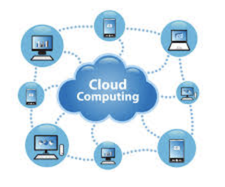There is no denying that businesses, both big and small can enjoy numerous benefits from cloud computing. However, as with anything in this world, this type of technology has its drawbacks as well. As such, it is essential that you take the time to comprehend the pros and cons of cloud computing, which will enable you to get the most out of it.
The Pros of Cloud Computing
Saving Costs
IT cost savings is perhaps the most significant benefit of cloud computing. Businesses, regardless of the size exist to earn money while keeping the operational expenses and capital to a minimum. With this solution, you can save significant capital costs with no application and in-house server storage requirements. The lack of this infrastructure ideally eliminates the associated costs in the form of air conditioning, power as well as administration costs. It is usually a misconception that only big firms can be able to utilize the cloud, when in fact, cloud computing services are quite affordable and accessible for smaller businesses as well.
Strategic Edge
The ever-increasing resources in the computing field will give you a competitive edge over your business rivals as there won’t be a time where you will need IT procurement. Your firm can deploy critical applications that provide substantial business benefits with no upfront costs and reduced provisioning time. Cloud computing ideally lets you forget about technology and allows you to pay attention to critical activities and business goals. Cloud computing can ideally help you reduce the time required to market newer products and services.
Scalability
You can be able to scale up or down your storage and operation needs quickly to fit your situation. This allows for flexibility as your business needs change. Instead of buying and installing costly upgrades yourself, the cloud computing service provider will handle things for you. Utilizing the cloud frees up your time so that you can focus on other critical business activities.
The Cons of Cloud Computing
Security
 Even though most of the well-known cloud service providers have industry certifications and implement the best security standards, storing valuable data on external storage service providers opens up many risks. Utilizing cloud computing means that you have to provide the service provider access to your business data. The ease in accessing cloud services ideally gives fraudsters the ability to look for, identify and exploit vulnerabilities and loopholes within the system. For example, in a multi-tenant cloud system where several users utilize the same server, a hacker might attempt to gain access to data of other people hosted and stored in the same place. However, the chances of this happening are next to nil, and the likelihood of compromise is unlikely.
Even though most of the well-known cloud service providers have industry certifications and implement the best security standards, storing valuable data on external storage service providers opens up many risks. Utilizing cloud computing means that you have to provide the service provider access to your business data. The ease in accessing cloud services ideally gives fraudsters the ability to look for, identify and exploit vulnerabilities and loopholes within the system. For example, in a multi-tenant cloud system where several users utilize the same server, a hacker might attempt to gain access to data of other people hosted and stored in the same place. However, the chances of this happening are next to nil, and the likelihood of compromise is unlikely.
Downtime
As the cloud computing providers handle some clients per day, they can be overwhelmed, not to forget the possibility of technical outages. This could lead to your business being temporarily suspended, which is the last thing you want, primarily if your business heavily depends on online traffic. Ideally, if your internet connection is down, you won’t be able to access your server, data or applications from the cloud.
